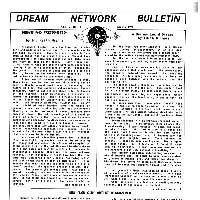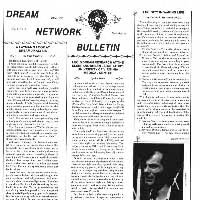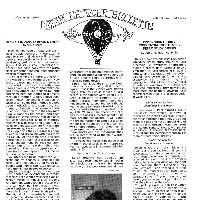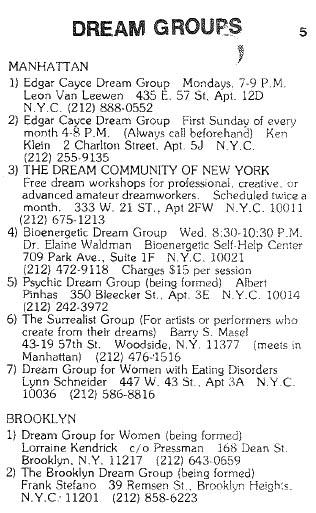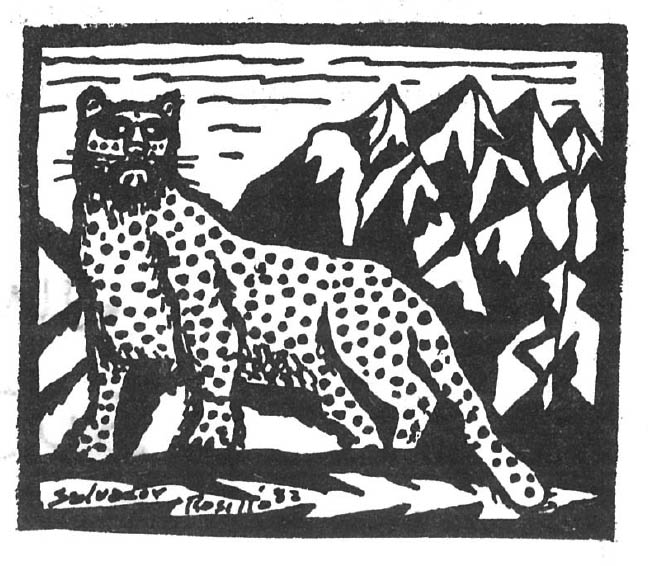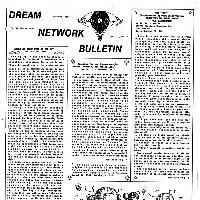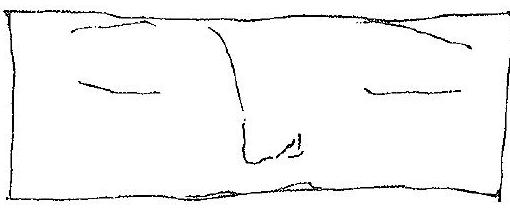How you should analyze your own dreams depends on what you dream about. For example, I dream often of National Parks and nature preserves. The way for me to analyze these dreams is the same way I would analyze a mangrove swamp in the Everglades National Park if I were walking along a boardwalk. I wouldn't want to disturb the natural exuberance there, in any way be interfering with it and I wouldn't want to pollute it when I leave it behind. I want it to exist as it has always existed, forever, eternal, a refuge for forms of consciousness that have been all but crowded out of existence anywhere else in my being or in the world. I want to protect it and revel in its awe. The best way to analyze this sort of dream is to lie in bed upon awakening and taste and touch all its life in your memory until, if you are lucky, you end up slipping back into the dream again. But how wonderful! Now you're in a different part of the park. Now you're on the board walk through the hard wood hammock. Now the life around you and the feelings are entirely different. You've entered into a different environment of yourself and when you awaken again you can return to savor all its images and feelings in your memory. You can repeat this cycle again and again returning to the dream as many times as you need or, more realistically, as many as time will permit. Each transit is a stitch reconnecting your waking consciousness with some natural part of yourself. Each stitch will tie you closer for that whole subsequent day to what is most naturally you. So it'll be a successful day because doing what comes most natural to you, you do it very well.
Unfortunately we often play tricks on ourselves and feel we're wasting time when we do what comes natural. Once when I was studying in the library reading room in college a girl came up to me and asked me if I wanted to take a walk in the woods. I looked up surprised and told her no, that I was studying for an exam. For a good minute or two after she left by herself, I still believed that studying for that exam was a more natural thing for me to do than go for a walk with that girl in the woods. I was a freshman at the time and a virgin. Clearly what was really natural in me was being repressed by external demands that were being made on me: that I do well in my first year at college. In retrospect I can see I would have probably been a lot less frustrated and in a lot better emotional state to make good grades that year if I'd gone to the woods with that girl.
But the point is: in the present moment we often deny ourselves what comes natural to us and is therefore good for us because of external pressures that are too great for us to satisfy because we are being unnatural. It's like one of those R.D. Laing knots:
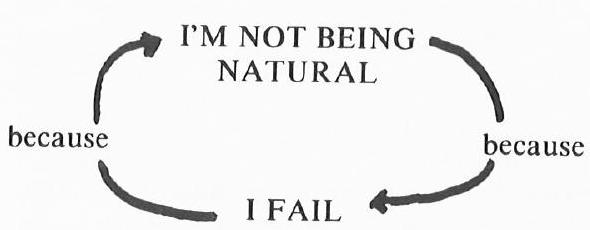
Which can translate to: "I'm not being natural and I fail" and which can be broken out of by being natural in everything you do and therefore becoming a success. Being natural means being yourself, true to your feelings and not the feelings that are expected of you. This is what makes it hard: because people expect us to be something we aren't. My professor expected me at 19 to be more interested in calculus than in girls. I tried but there were so many pretty girls in my class I ended up spending the time drawing nude women's bodies secretly in my notebook. Hundreds of them. I never did too well in calculus. I'd probably have done lots better though in that class if I'd gotten to know one of those girls. But no, I was too busy studying calculus for that...or trying to.
Such episodes as this that we inflict upon ourselves by not operating on our instinct I have managed to lessen a little bit in my own life by this technique of "dream stitches." I get closer to myself by weaving back and forth from the dream to waking consciousness. This is the way I analyze dreams that tell me they want to be analyzed this way.
Now let's say I dream I am a botanist collecting specimens on a Caribbean island. This is another kind of dream I frequently have. Here the active party isn't my dream self but the dream character that represents my waking self. My dream self knows my waking self needs something in the dream and, like a woman that offers her body to a man she loves, the dream is offering its topography up for my waking ego identity to come into it and partake selectively of its treasures. The dream is less happy because I am not taking all of it, but more happy because I am bringing more of myself into taking what I do. By what I take the dream knows me and by what I find, I know the dream. Oh, you bet the dream is going to be processing what it found out about me. So you can be sure I'm going to analyze this dream down to the opening where I can find out what the dream self found out about me. I want to defend myself by knowing as much about myself as it does. Small matter that, as a result of the analytical process I subject the dream to, I am going to lose myself in a synthesis with my dream consciousness itself - a synthesis that all this analysis snaps me into when carried to its extreme degree. A lot of people who tell you not to analyze dreams are very analytical people really. What they are afraid of is that you're analyzing more than them and they intuitively fear this is going to catapult them into what they are least able to deal with: synthesis. Yes, these people who don't want to analyze are people who can't synthesize. Their waking mind is avoiding a deeper union with their dream mind and settling for a shallower one. They prefer to be unconscious of all the false analyses their supposedly "natural" behavior is based on. Analyzing anew would bring these false precepts to the fore and would be threatening to them.
The dream of collecting specimens tells me to collect specimens of the dream. So I take every most insignificant little piece of that dream. I write it down. I draw an arrow. I write the thing that first comes to mind or that most significantly comes to mind. The first association often leads to a second, the second to a third, etc., all separated by their neat little arrows. With practice at this I learn how to build a "bridge." This is what I call it when one word or image in the dream will connect through a series of associations with another. It is these secondary connections that prove most valuable ultimately in deciphering the meaning of the dream. With tertiary and quaternary connections the dream increases to twist itself into a different shape until it snaps finally and all of a sudden I'm not associating any more. I'm writing down a stream of insights as fast as my little pen will go. This is the dream consciousness that is writing directly through me now. Analysis alone, carried to the extreme, always leads me to this synthesis with a consciousness under my own waking consciousness - a much deeper and more intelligent consciousness that I could ever imagine myself capable of. This whole process is the best exercise I know for a writer to develop the talent, eventually, of writing from this state all the time. The Chinese Zen Buddhists have a word for it. I forgot what it is. But it is when your action is coming from the larger part of you and so it is fuller, more effective action. So you see, we're back to being natural. Either way of working with dreams always leads back to this generality.
Why work with your dreams then if you know this great rule of dreams "Be Natural"? Clearly, to find out again and again, on deeper and deeper levels what is most naturally you. This seems to me to be a never ending process. Maybe that's only true for me because I have so much to learn about myself. But to judge from the people I've known well in my life. I would venture to say it's true for everybody. We all seem to need to learn about ourselves a lot more than we need to learn about anything else.
So the issue isn't whether or not one should analyze dreams, as some dream experts would have us believe. The issue is how to analyze them: with your mind? with your reverie? with the activities of the ensuing day? And none of the experts can offer you much useful advice on this matter, although a good many do their best to propound the ways they are fixated on. The truth is that only your dreams can tell you how they want to be worked with. And different dreams will need a different touch. So the dance of communication we are doing with our dream self as we go through this life will involve many different ways of working with our dreams. Too often people's interest in dreams dies because it becomes the rigid repetition of the same old formula, whether Freudian or Jungian or Sethian or Gestalt or Senoi or whatever. None of these ways are enough. A woman doesn't want to be made love to in the same way each time. Her body as much as tell you this and shows you the way she wants. A dream is like this too. Why have a stale marriage with your dreams when you can have a hot and promiscuous one!



